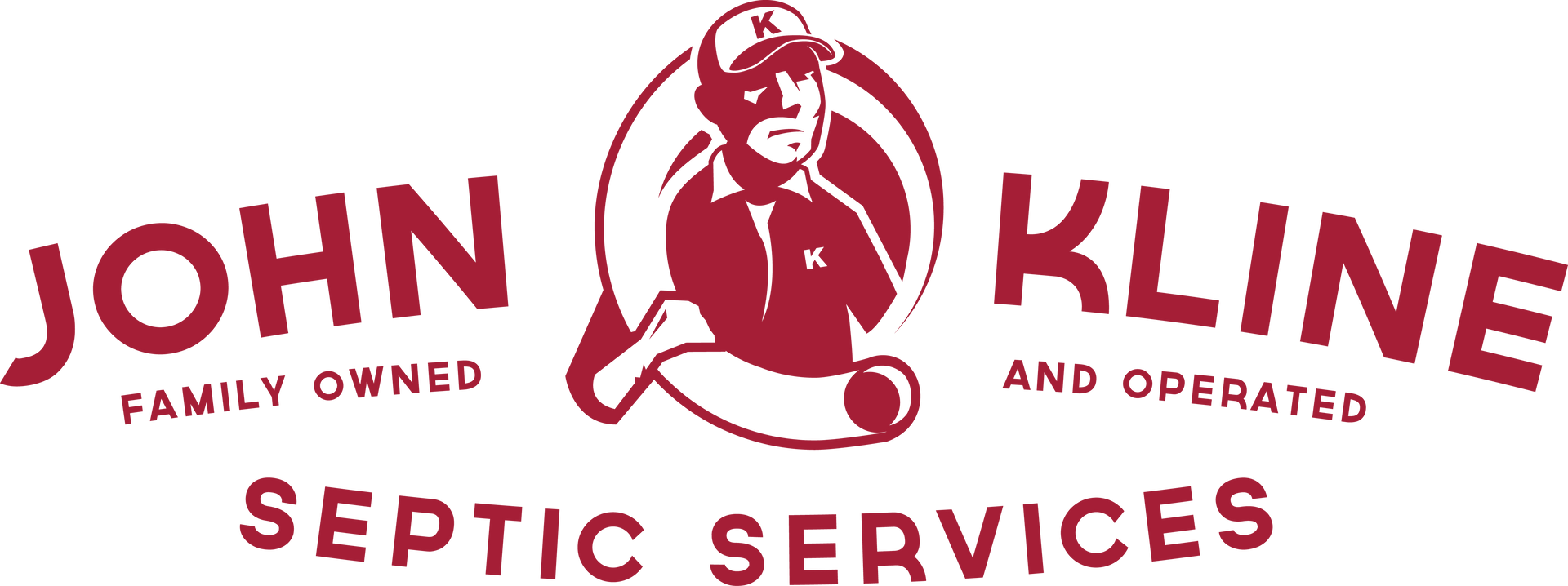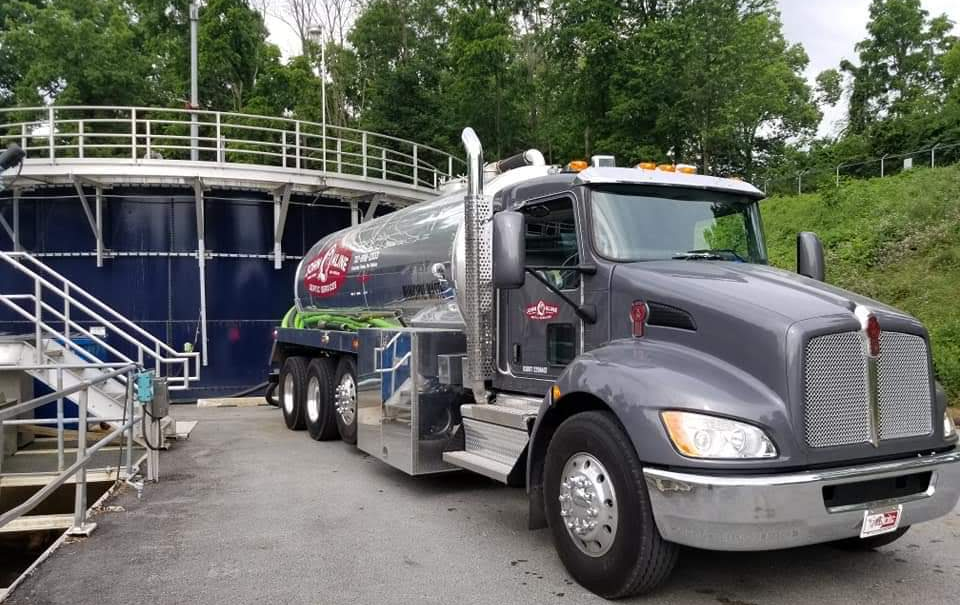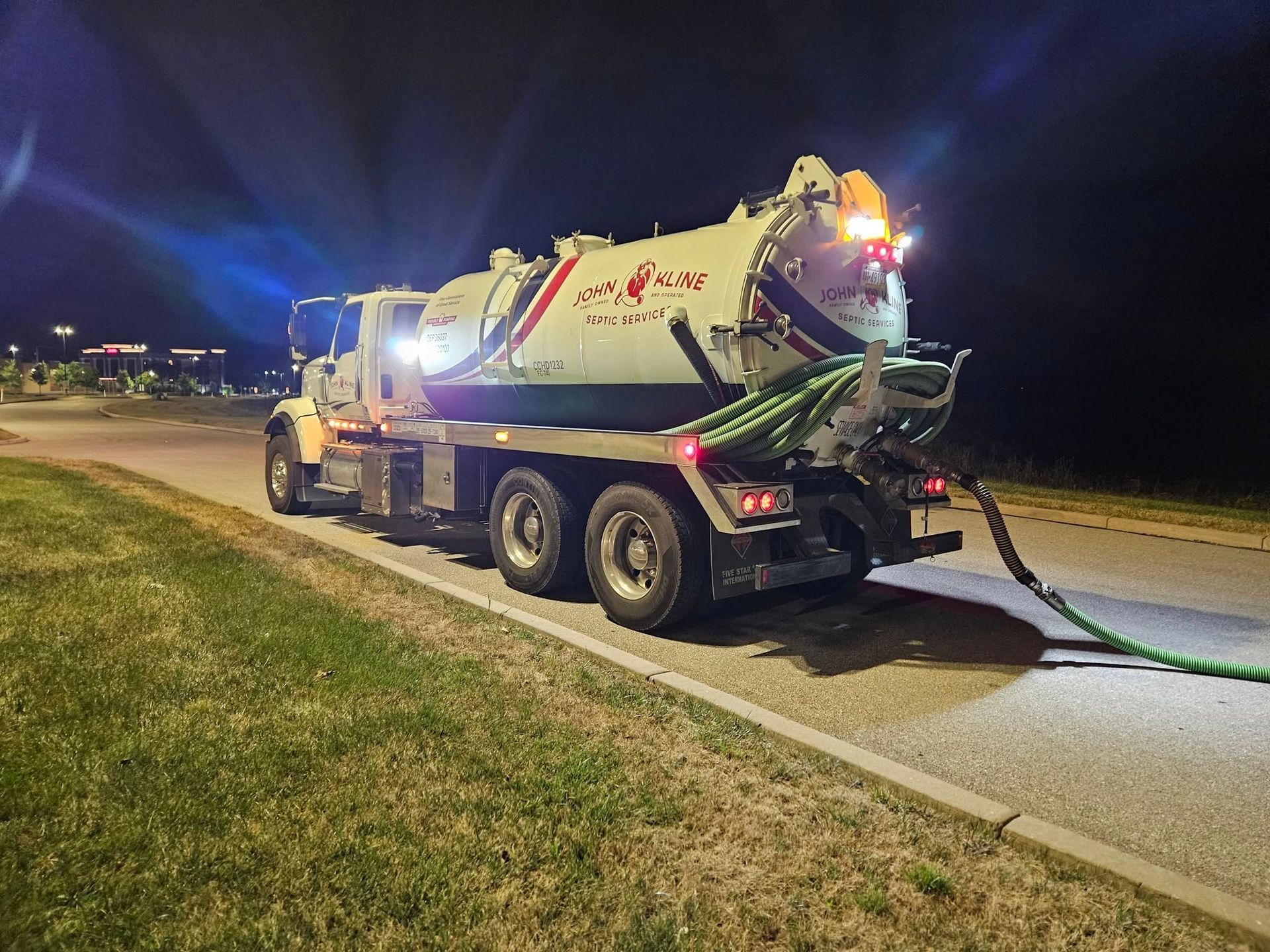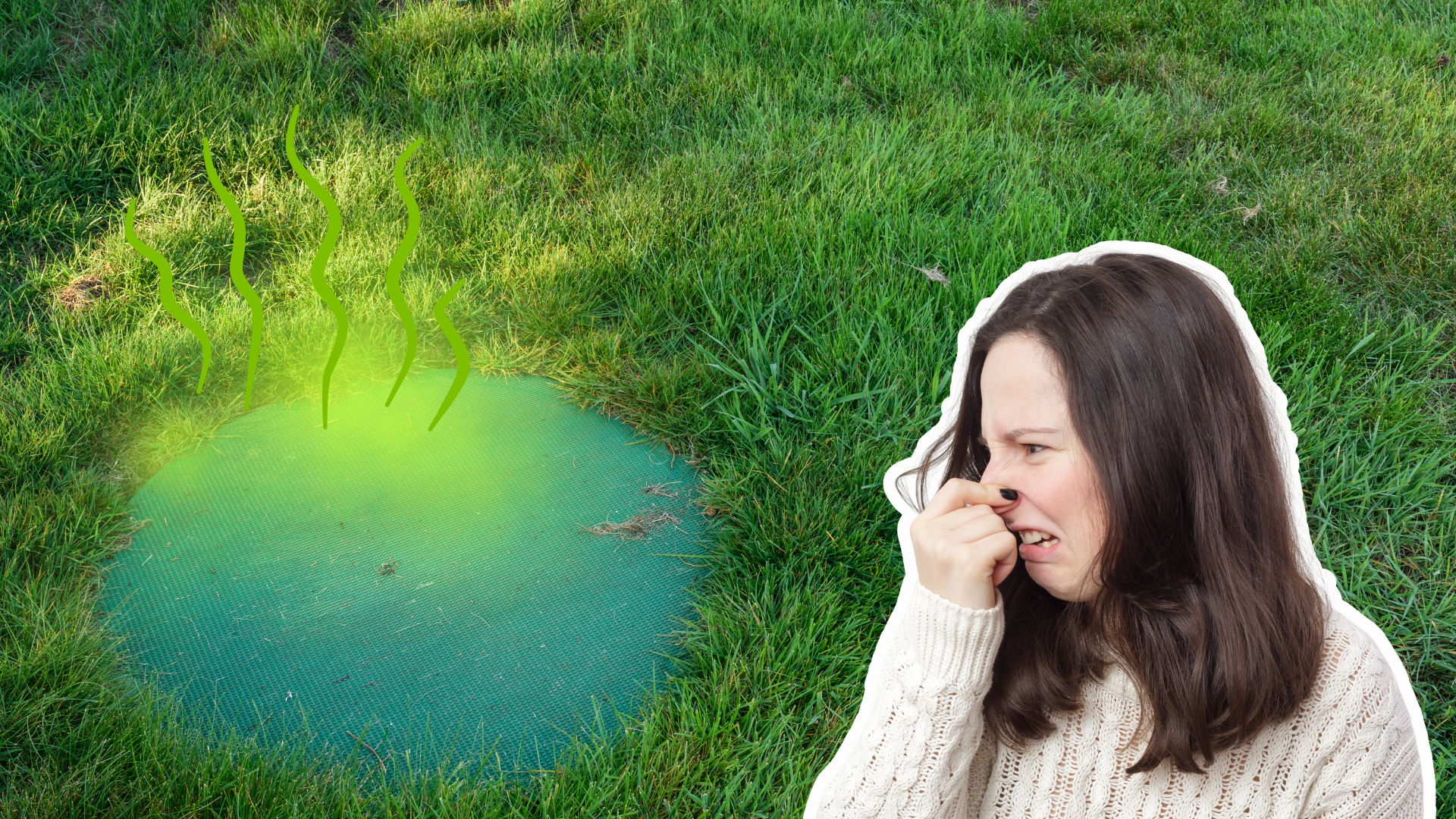The Ultimate Septic System Maintenance Guide: Keep Your Tank in Top Shape
Homeownership comes with a slew of responsibilities, and if you're a property owner with a septic tank, maintaining it is one of those crucial tasks. A well-maintained septic system can serve you efficiently for years, avoiding the mess and chaos of unexpected failures. But what does proper maintenance entail? How can we keep our septic system in top shape and prevent costly repairs down the road? In this guide, we'll break down the essentials of septic system maintenance and how to clean septic tank to keep your septic system functioning smoothly.
Ever wondered if your septic system is operating at its best? Don't let it be out of sight, out of mind—let's dive into the nitty-gritty of keeping your septic tank in excellent condition - with tips from septic system professionals.
Key Takeaways
- Understand the components and workings of your septic system as well as your septic tank size
- Recognize signs of a full septic tank to avoid malfunctions
- Perform regular maintenance tasks including pumping and inspections
- Properly dispose of household waste to protect your system - especially if you have a garbage disposal
- Know when to call in professional help to prevent major issues
Understanding Your Septic System
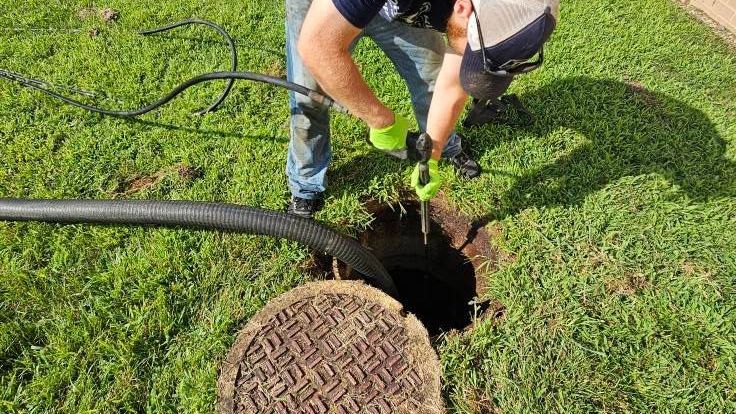
Before we can dive into maintenance, it's crucial to grasp how your septic system operates. Essentially, a septic system is like a mini water treatment plant right in your backyard. It processes all the wastewater from your home, handling everything from the kitchen sink to the bathroom shower.
Components of a septic system
At the heart of every septic system lies the septic tank, a large, underground container that holds and processes wastewater. When water flows from your home, the tank temporarily stores it, allowing heavier solids to settle at the bottom, forming what's known as a sludge layer. Meanwhile, lighter materials such as oils rise to the top, creating a scum layer. Between these layers, a clear liquid, called effluent, is formed.
From the tank, the effluent travels through pipes to the drainfield, a designated area where the treated water gradually disperses into the soil. Here, the natural filtration process occurs, breaking down any remaining impurities before the water rejoins the groundwater supply. It's crucial that the drainfield remains unobstructed to function correctly, which is why regular inspections are vital.
Baffles are another essential component of the septic system. These barriers, located at the inlet and outlet of the tank, prevent solids from exiting too quickly and causing blockages. The access ports are equally important as they allow professionals to inspect and maintain the system, ensuring everything is in good working order.
How a septic tank works
When wastewater leaves your home, it enters the septic tank where the magic happens—thanks to the help of bacteria. These microscopic workers break down solid waste with remarkable efficiency, transforming it into simpler substances. The clear liquid, or effluent, then moves into the drainfield to undergo further natural filtration.
Over time, the solids that don't break down settle at the tank's bottom, forming a sludge layer. It's essential to monitor the sludge and scum levels to know when it's time for a clean-out. Regular pumping keeps these layers from becoming too thick, which could lead to system overflows and backups.
While the mechanized parts of the septic system may seem daunting, understanding their function is key to maintaining a healthy system. By keeping an eye on sludge levels and ensuring regular clean-outs, homeowners can avoid costly repairs and prolong their septic tank's lifespan.
Signs of a Full Septic Tank
A full septic tank isn't just a nuisance—it can lead to serious problems if left unaddressed. Recognizing the signs of a full tank can save you from headaches and expensive repairs.
Slow draining sinks and toilets
One of the most noticeable signs of a full septic tank is slow draining sinks and toilets. If you're finding that your sinks are taking longer to empty or your toilet isn't flushing as it should, it might be time to investigate further. This sluggishness often indicates that your tank is nearing capacity and can't accommodate more wastewater efficiently.
In some cases, slow drainage might also point to a clog within the system. While minor clogs can sometimes be cleared with a plunger or drain snake, persistent issues should be addressed by a professional. Ignoring these signs could lead to more severe problems, including backups and overflows.
Foul odors in the yard
If you're catching a whiff of something unpleasant in your yard, it might be your septic system trying to communicate with you. Foul odors around the septic tank or drainfield often mean that gases are escaping due to the tank nearing its capacity. Regular maintenance, including timely pumping, can help prevent these unpleasant smells from becoming a recurring issue.
While a slight odor might not seem alarming, it's crucial to address it promptly. Neglecting the problem could lead to more severe issues, such as system failures or environmental contamination.
Pooling water around the septic tank
Another telltale sign of a full septic tank is pooling water around the tank or in the drainfield area. If you notice water collecting in your yard, especially after dry weather, it's time to take a closer look at your septic system. This pooling suggests that the drainfield isn't absorbing liquid properly, often because the tank is full and needs pumping.
Regular inspections and maintenance can help you catch these issues early, preventing more significant problems down the line. A proactive approach not only saves money but also ensures the longevity and efficiency of your septic system.
Regular Maintenance Tasks
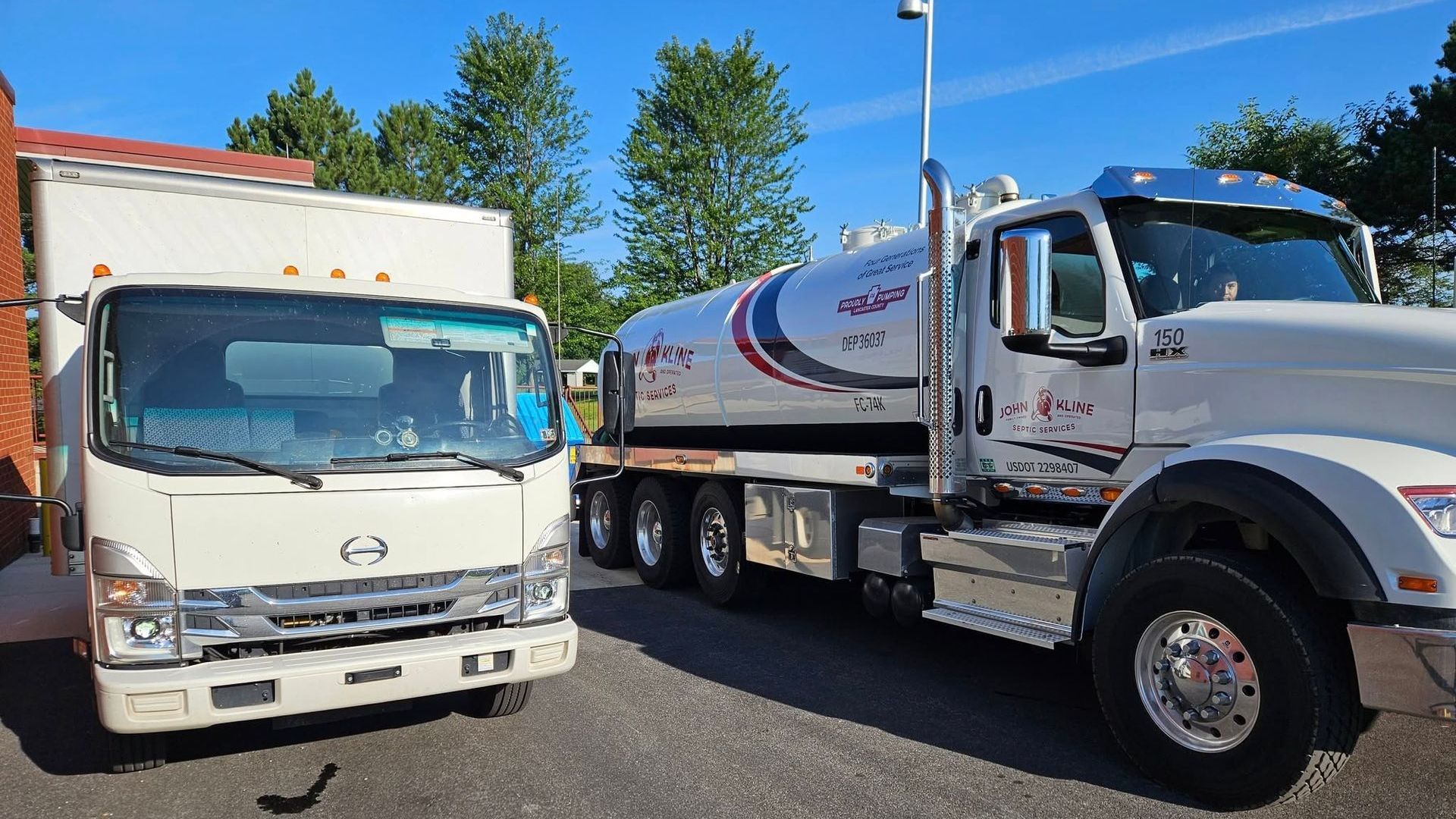
Taking care of your septic system involves several regular maintenance tasks that keep it running smoothly. Let's explore these essential steps to maintain your system's health.
Pumping the septic tank
One of the most critical maintenance tasks is pumping your septic tank. Most systems require pumping every 3 to 5 years, depending on usage and tank size. Regular pumping prevents overflows and backups, ensuring your system doesn't encounter unexpected failures.
When you schedule a pumping service, a professional will assess the condition of your tank. They will check for any signs of damage or leaks and make necessary recommendations. Proper scheduling and pumping extend the life of your septic system, saving you from costly repairs. Learn more about Lancaster PA septic pumping here >>
Inspecting the tank for leaks
Routine inspections are key to identifying potential issues before they become major problems. A thorough inspection can reveal cracks, damage, or other issues that might not be visible to homeowners. Professionals have the expertise to detect problems early, preventing costly repairs down the line.
During an inspection, experts will examine the tank's depth, check for root intrusion, and provide a detailed report of their findings. Early detection of leaks and other issues helps maintain your system's efficiency, ensuring it continues to operate smoothly.
Adding bacteria supplements
A healthy septic system relies on beneficial bacteria to break down waste efficiently. Bacteria supplements can help maintain this balance by introducing additional microbes into the tank. These supplements support waste breakdown, preventing clogs and ensuring efficient processing.
Avoid using excessive chemical cleaners that could harm the bacteria in your tank. Instead, opt for natural cleaning solutions and regularly add bacteria supplements to keep your system in optimal condition. This simple step can significantly enhance your septic system's performance and longevity.
Proper Disposal of Household Waste
What goes down your drains affects your septic system's health. Proper waste disposal practices are crucial to maintaining a well-functioning system.
Avoiding harsh chemicals
Harsh chemicals can disrupt the delicate bacterial balance within your septic tank. Opt for natural cleaners whenever possible to protect the beneficial bacteria essential for waste breakdown. Over time, chemicals can corrode system components, leading to costly repairs.
Adopting safe disposal practices not only protects your system but also contributes to its longevity. By being mindful of what you pour down the drain, you can avoid unnecessary damage and keep your septic system running smoothly.
Using septic-safe toilet paper
Choosing the right toilet paper is more important than you might think. Septic-safe toilet paper breaks down easily, reducing the risk of clogs and slowdowns in your system. Unlike regular paper, which can lead to blockages, septic-safe options ensure that the waste flows smoothly through your system. When shopping for toilet paper, check the labels to confirm compatibility with septic systems. This small change can prevent unnecessary issues and keep your septic system functioning efficiently.
Being mindful of what goes down the drain
Only flushing waste and toilet paper is a rule of thumb for septic system care. Grease, oil, and non-degradable items should never enter your drains, as they can cause significant damage. Awareness of what goes down the drain is crucial to protecting your system. Learn more here >>
Educating household members about proper disposal methods helps ensure everyone contributes to maintaining a healthy septic system. By making small changes in your daily habits, you can significantly impact your system's performance and longevity.
Hiring Professional Help
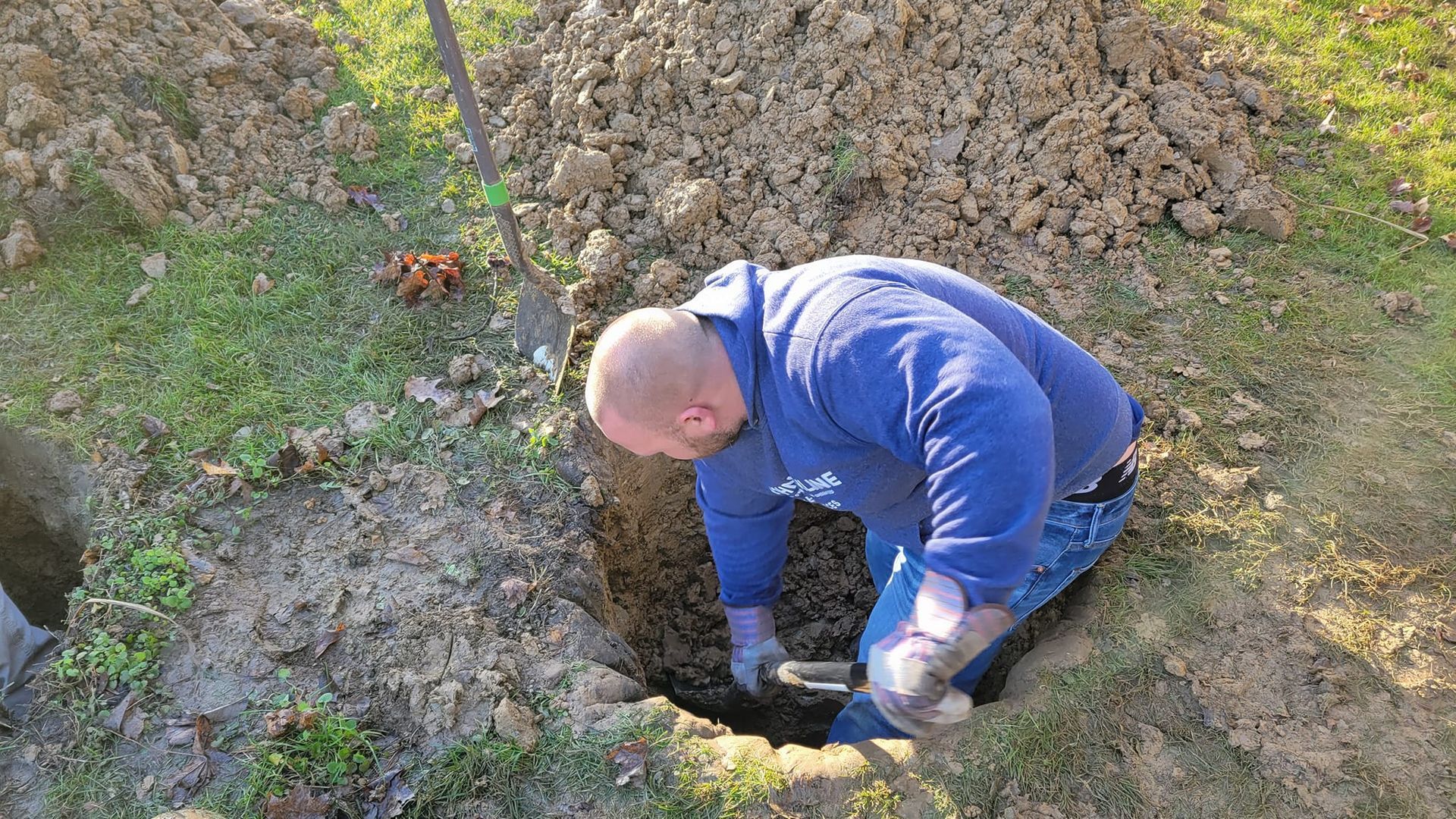
Sometimes, you need the expertise of a professional to keep your septic system running smoothly. Knowing when to call in the experts can save you from major headaches and expenses.
When to call a septic system expert
If you notice system malfunctions, backups, or other issues, it's time to call a septic system expert. Regular inspections by professionals can prevent major failures and provide peace of mind. Experts offer valuable advice on maintaining optimal system performance, ensuring your septic system remains in top shape.
Immediate professional help can save you from costly repairs and prevent further damage to your system. Don't hesitate to reach out to experts like John Kline Septic, serving Lancaster, PA, and the greater central PA area. Visit our contact page or call 717-898-2333 to talk to one of our schedulers today.
Finding a reputable septic tank service provider
Choosing the right service provider is crucial for maintaining your septic system's health. Research local providers with positive reviews and recommendations to find a reliable company. Verify their licensing and insurance credentials to ensure you're working with qualified professionals.
Building a relationship with one provider offers consistency and quality service. A trusted septic service provider like John Kline Septic Services, ensures your septic system receives the care it needs, keeping it running smoothly for years to come.
Troubleshooting Common Septic System Issues
Even with regular maintenance, issues can arise. Knowing how to troubleshoot common problems can save you time and money.
Dealing with clogs and backups
Minor clogs in the system can often be resolved with a plunger or snake. However, persistent clogs might require professional attention. Avoid using harsh chemicals that can harm your septic system and opt for natural solutions instead.
Addressing backups quickly is crucial to prevent further damage. If you're experiencing frequent clogs or backups, it might be time to consult a professional to assess your system and provide guidance.
Addressing drain field problems
Drain field issues can lead to slow drainage or standing water in your yard. Compacted soil or roots might obstruct proper water absorption, causing problems in your septic system. A professional assessment can determine the cause of the issue and recommend appropriate solutions.
Timely intervention ensures your drain field remains effective, preventing further complications. Regular inspections and maintenance can help you catch these issues early and keep your septic system functioning efficiently.
Septic Tank Safety Precautions

Safety should always be a top priority when dealing with septic systems. Following safety precautions can protect you and your family from potential hazards.
Avoiding physical contact with septic waste
Direct contact with septic waste poses serious health risks. Always use protective gear when handling septic components and avoid entering the tank. Leave these tasks to professionals who have the necessary equipment and expertise to handle them safely.
Safety precautions prevent exposure to harmful bacteria and ensure the well-being of everyone in your household. By following these guidelines, you can avoid potential health hazards associated with septic waste.
Properly ventilating the septic tank area
Ventilation is essential for preventing the buildup of harmful gases in the tank area. Proper vents ensure the safe operation of your septic system and contribute to its efficiency. Regularly check vents for blockages or damage to maintain a safe environment.
Good ventilation is a critical aspect of septic system maintenance, helping prevent potential hazards and ensuring the system functions correctly. By prioritizing ventilation, you can enhance the safety and efficiency of your septic system.
Benefits of Proper Septic System Maintenance

Maintaining your septic system offers numerous benefits, including extending its lifespan and preventing costly repairs.
Extending the lifespan of your septic system
Routine maintenance prolongs the life of your septic system, reducing the risk of major failures. Preventive measures help avoid unexpected issues and keep your system operating efficiently. Long-term care not only saves money but also reduces stress over time.
By regularly maintaining your septic system, you can enjoy peace of mind and confidence in its performance. Proper care ensures your system serves you well for years to come.
Preventing costly repairs
Proper upkeep minimizes the need for expensive repairs, saving you from financial strain. Small issues, if neglected, can lead to significant problems that require costly solutions. Regular attention to your septic system can prevent these unexpected expenses.
Investing in maintenance now prevents future financial burdens, allowing you to focus on other priorities. By committing to regular maintenance, you can avoid the headaches and costs associated with major septic system failures.
In conclusion, maintaining your septic system involves a combination of regular maintenance tasks, proper waste disposal practices, and knowing when to call in the experts. By following these guidelines, you can keep your septic system running smoothly and avoid costly repairs. Are you ready to take charge of your septic system's health and longevity? Let's start today and ensure your system remains in top shape for years to come! Click here to schedule your next septic service >>
Frequently Asked Questions
How do I care for my septic system?
Regularly maintain your septic system by having it inspected and pumped every 3-5 years. Avoid flushing harmful chemicals or non-biodegradable items down the drain. Use water efficiently to prevent overloading the system. Learn more here >>
What happens if I don’t regularly have my septic tank pumped?
If you neglect to pump your septic tank, solid waste will build up and clog the system. This can lead to sewage backups, foul odors, and potentially costly repairs. Regular pumping is essential to prevent these issues.
What are the signs that your septic system is full?
Signs that your septic system is full include slow draining sinks, toilets backing up, foul odors in the yard, and lush grass over the drain field. If you notice any of these signs, it's important to have your tank pumped as soon as possible.
What preventive measures can I take?
To prevent septic system issues, avoid flushing items like grease, paper towels, and chemicals down the drain. Use septic-safe toilet paper and limit water usage. Plant trees away from the drain field to prevent root intrusion.
How to clean a septic tank?
Cleaning a septic tank requires professional help. A septic tank cleaning service will pump out the solids and sludge from the tank, ensuring it continues to function properly. Regular cleaning is essential for maintaining a healthy septic system. To schedule your next septic pumping, click here >>
LEARN MORE ABOUT:
- Lancaster, PA Septic Pumping
- Lancaster, PA Septic Repairs
- High Pressure Jetting in Lititz, PA
- Drain Line Opening in Lititz, PA
- Septic Repairs in Lancaster, PA
- Grease Trap Service in Lancaster, PA
